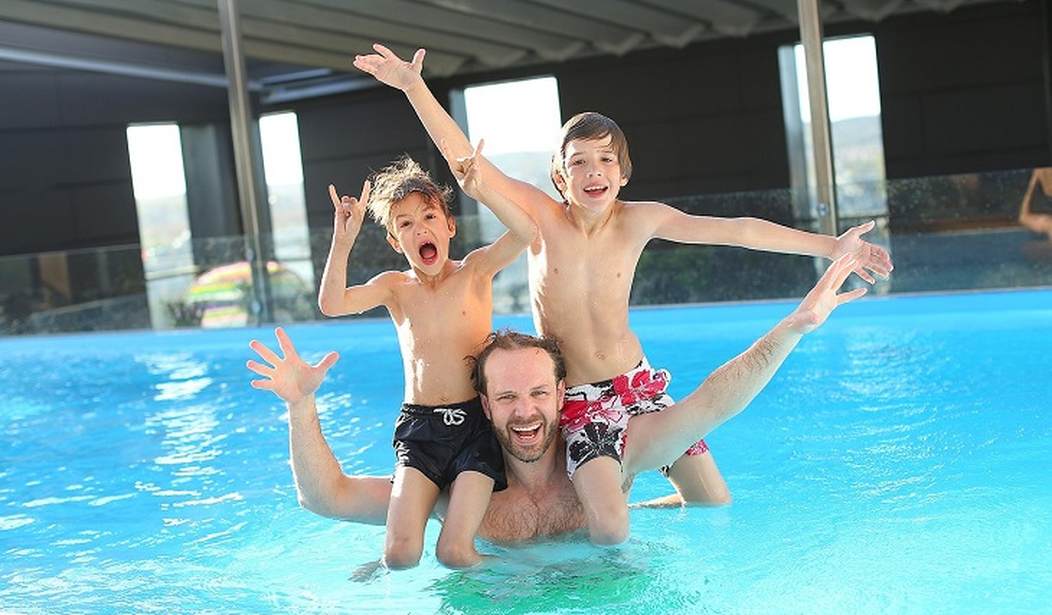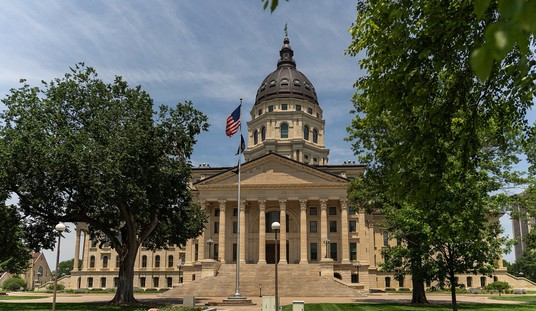Farm and rural families tend to have a lot of kids. Part of this is the free labor that country kids provide their parents; when I was a kid, while my townie schoolmates were sleeping in on a summer vacation morning, the Old Man would be booting me out of bed no later than 7 AM, saying, "Come on, we have chores, and we're burning daylight." I was from a small family for that size and place, being the youngest of five. I used to go out shooting squirrels and ruffed grouse with a classmate who was from one of the big families in Allamakee County in those days; he was 12th of 17. I once asked him what that was like; he laughed and told me, "I've got underwear that's older than I am."
As I recall that kid did pretty well later in life; he went to a tech school, got certified as a machinist, and, last I knew, was working down in Omaha for some manufacturing outfit. The big family background didn't seem to slow him down any. But now, we see a report that kids from big families have poorer cognitive development than kids from small families.
Over the past few decades, scientific research has shown that children in larger families perform worse in school, score lower on cognitive tests, and attain fewer years of education than kids in smaller families. Researchers theorize that additional children stretch parental resources thin, leaving parents with less time, energy, and money to devote to their kids’ development. For example, parents might read to children less, not have the time to ensure school attendance, or lack the savings to pay for tutors or after-school programs.
Yet some researchers contend these results might be spurious, shaped by confounding variables such as parenting style or age. After all, parents with more children are likely to be younger and have different personalities compared to parents who have fewer.
After two researchers, Professor Wei-hsin Yu of UCLA and University of Maryland's Hope Xu Yan, reviewed the data and attempted to control some variables, some interesting, if not exactly surprising, results emerged:
“Earlier children experience the greatest reductions, because they lose the most parental attention,” the researchers explained. “Because parental resources become increasingly restricted as family size grows, third- and later-born children are likely to receive so little nonessential resources that their share can barely be diluted by a new, younger sibling.”
While cognitive development took a hit, kids’ behaviors were assessed as better on average in larger families. This was primarily true for younger siblings, however. First- and second-born kids displayed slightly more behavioral problems as they gained siblings, perhaps due to reduced parental attention.
Color me skeptical.
All kinds of things influence kids while they are growing up, but none have more influence than their parents. It would be interesting to see how many of the children of the big families surveyed here all had the same two parents; that alone counts for a lot. And having siblings brings a level of support that only children just don't have.
See Related: Author Claims Children With 'Two Parent Privilege' Do Better, but Is That the Cause or Effect?
Sociology isn't a hard science; that much is certain. Sociologists, in many studies like this, are working to simplify something that is horribly complicated, and the best they can hope to achieve is identifying some very, very broad trends. It's not clear at all what the sociologists working here consider to be a "big" family, so I don't know if my sample size of five kids (my siblings and me) counts, and granted we make up an anecdote, the plural of which is not data. But here we are regardless; my oldest sister and assertive head of the family, now that our parents are gone, is 75, retired corporate VP, heavily involved in her community, and the focal point of information for our large, extended family. I don't see that she, or indeed any of us, suffered for having as many siblings as we did.
Studies like this just seem to me to be too fuzzy to lend much credence to.
Feel free to read it and make up your own mind, though. You can view the full study here.















Join the conversation as a VIP Member